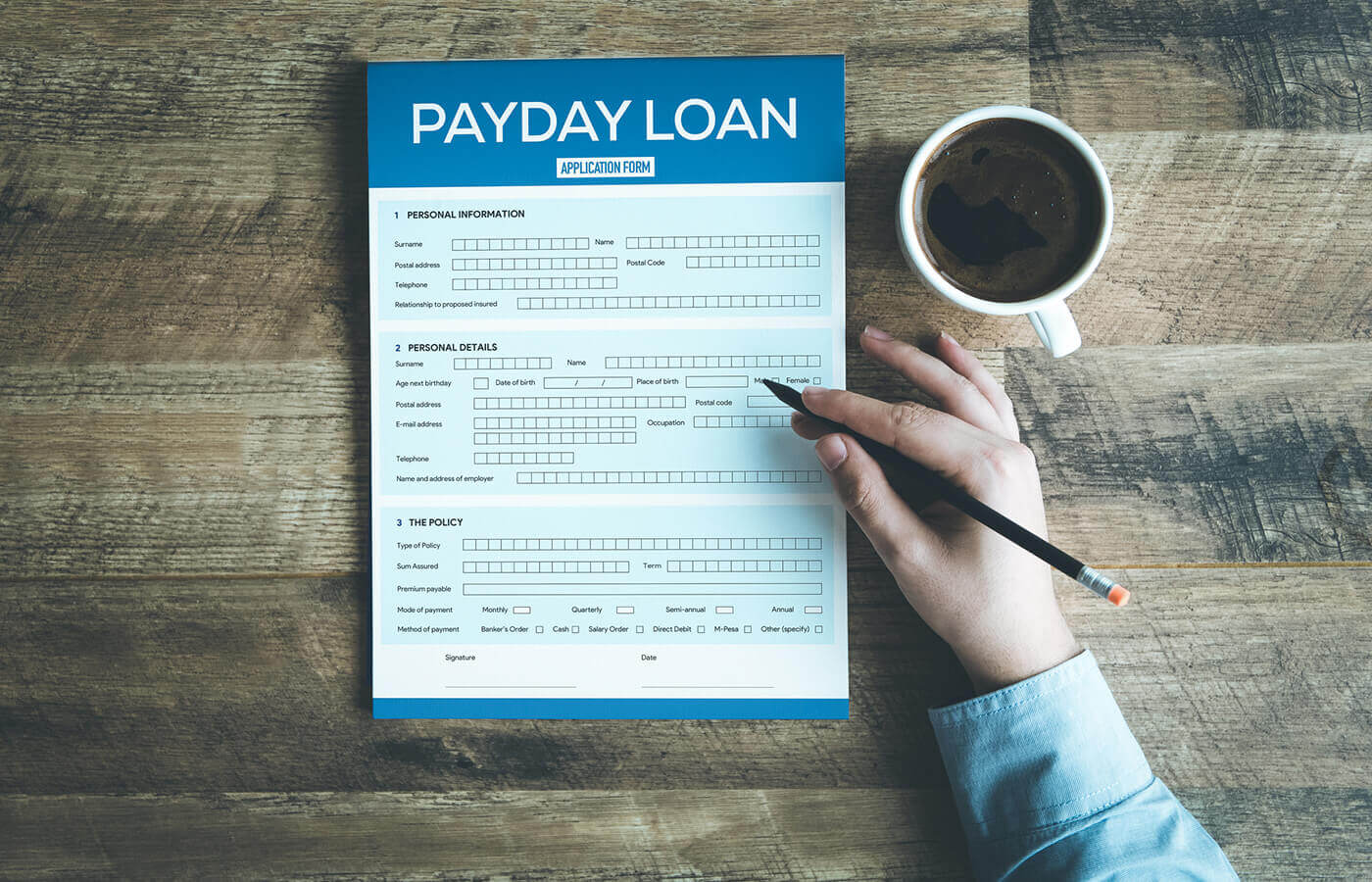How to use Installment Loans to plan your long-term financial goals
A Comprehensive Guide to Home Loans: Services and Options Explained
Charting the globe of home car loans can be complex. Different options exist, each with one-of-a-kind features and ramifications for potential homeowners. Understanding the differences between government-backed and standard fundings is essential. The application process includes precise documentation and pre-approval steps that lots of overlook. As debtors start on their home-buying trip, knowing just how to handle these obligations efficiently could imply the difference between financial security and hardship. What methods can empower them on this course?
Recognizing Home Loans: Kinds and Terminology
Recognizing the numerous types of mortgage and their associated terminology is necessary for potential house owners, as it furnishes them with the understanding required to make enlightened financial choices. Mortgage can be broadly categorized right into adjustable-rate and fixed-rate home mortgages. Fixed-rate home mortgages preserve a regular rate of interest over the life of the loan, supplying stability in regular monthly repayments. Cash Loans. On the other hand, adjustable-rate home loans feature rate of interest that might fluctuate after an initial set duration, potentially leading to reduced first settlements however boosted future expenses
Additional terms is very important for quality. Principal describes the car loan amount borrowed, while interest is the expense of loaning that amount. The term of the loan shows its duration, normally varying from 15 to thirty years. Recognizing these basic principles allows possible purchasers to navigate the complex landscape of home financing, ensuring they pick the ideal finance choice that lines up with their financial circumstance and lasting goals.
Traditional Financings vs. Government-Backed Loans
A substantial difference in home funding exists between government-backed car loans and traditional lendings, each satisfying various borrower needs and circumstances. Standard fundings are not insured or ensured by the government and typically call for greater credit report and deposits. They are often interesting borrowers with secure monetary histories, as they may provide affordable rate of interest and terms.
In comparison, government-backed fundings, such as FHA, VA, and USDA car loans, are designed to assist details teams of debtors, consisting of novice buyers and experts. Cash Advance. These loans usually include lower down settlement demands and more flexible debt criteria, making them available to a more comprehensive variety of people
Inevitably, the choice between standard and government-backed financings pivots on the consumer's economic scenario, long-term objectives, and qualification, making it crucial to carefully assess both alternatives prior to choosing.

The Duty of Rates Of Interest in Home Funding
Rate of interest play a vital duty in home financing, affecting customers' decisions between fixed and variable rate finances. The selection in between these options can greatly affect month-to-month payments, impacting general cost. Understanding how passion prices operate is vital for any individual navigating via the home mortgage procedure.
Repaired vs. Variable Rates
Buyers face a crucial decision when selecting in between repaired and variable rates, as this choice greatly impacts the price of funding gradually. Fixed-rate home loans offer stability, locking in a rate of interest for the life of the car loan, which can be helpful in a rising interest price environment. This predictability permits homeowners to spending plan better. Conversely, variable-rate home mortgages, or adjustable-rate home mortgages (ARMs), commonly start with lower preliminary rates that can change based upon market conditions. While this might cause lower preliminary settlements, customers face the threat of increased rates in the future. Inevitably, the choice in between set and variable rates depends upon private financial scenarios, risk resistance, and expectations regarding future rates of interest fads.
Effect On Month-to-month Repayments
When reviewing home funding choices, the impact of rate of interest rates on regular monthly payments is a vital factor to consider. Rates of interest directly influence the overall cost of loaning, impacting exactly how a lot a consumer will certainly pay each month. A lower rates of interest lead to smaller monthly repayments, making homeownership a lot more budget friendly. Conversely, higher prices can substantially increase regular monthly obligations, potentially stressing a house owner's budget plan. Furthermore, the loan term plays an essential function; longer terms may spread out settlements out yet can lead to paying even more interest gradually. Understanding how interest prices connect with lending amounts and terms is essential for borrowers to make enlightened economic choices and pick a home loan that aligns with their lasting economic objectives.
Home Loan Brokers vs. Direct Lenders: Which Is Right for You?
When taking into consideration a home mortgage, possible debtors must understand the unique functions and responsibilities of home mortgage brokers and straight loan providers. Each choice presents its very own advantages and my sources drawbacks, which can substantially influence the overall price of financing. An educated option requires mindful analysis of these variables to figure out the most effective fit for individual requirements.
Roles and Duties Specified
Navigating the complexities of home financing calls for a clear understanding of the roles and obligations of home mortgage brokers and direct lenders. Home mortgage brokers function as middlemans, connecting consumers with lending institutions. They assess a consumer's economic circumstance, curate loan alternatives, and guide clients with the application process, frequently leveraging multiple loan provider connections to secure beneficial terms. Alternatively, straight lenders, such as financial institutions and lending institution, supply loans directly to customers. They handle the whole lending procedure, from application to funding, with a focus on their own products. Each alternative presents distinct avenues for obtaining funding, making it important for debtors to examine their needs and choices when choosing between involving a mortgage broker or dealing with a direct loan provider.
Cons and pros Comparison
Choosing between a home mortgage broker and a direct lender can greatly impact the home funding experience, as each choice offers special advantages and disadvantages. Home loan brokers function as middlemans, supplying access to several lending institutions and possibly much better rates, while simplifying the funding procedure. Nonetheless, they might bill fees and rely upon commission structures that can influence their suggestions. On the various other hand, straight loan providers improve the procedure by supplying internal finances, which can result in faster authorizations and fewer difficulties. On the other hand, they may have a minimal choice of products and less adaptability relating to pricing. Eventually, the decision depends upon private preferences, financial scenarios, and the wanted degree of support throughout the home mortgage trip.
Expense Effects Examined
While evaluating the price effects of mortgage brokers versus straight lenders, potential home owners need to consider different variables that can greatly influence their general costs. Mortgage brokers usually bill fees for their services, which can differ substantially, influencing the total lending expense. They commonly have access to a larger variety of finance products and competitive rates, potentially saving customers cash in the lengthy run. Conversely, straight loan providers may supply a much more simple procedure Click Here with possibly lower in advance expenses, however their lending choices might be restricted. It is crucial for house owners to compare rate of interest, fees, and terms from both lending institutions and brokers, ensuring they make an educated choice that aligns with their financial goals and demands.
The Mortgage Application Refine: What to Expect

The mortgage application procedure can usually really feel intimidating for several applicants. It generally begins with gathering necessary paperwork, including proof of revenue, credit history, and individual recognition. Lenders utilize this details to analyze the candidate's economic security and determine finance qualification.
Next, applicants send an official application, which might include loading out on-line kinds or giving information in individual. During this stage, lenders assess various factors, such as debt-to-income ratio and credit report, to decide on lending terms.
Once pre-approved, the lending institution will perform a comprehensive evaluation of the property to identify its value lines up with the finance quantity. This stage might additionally consist of added background checks.

After final approvals and conditions are fulfilled, the finance is processed, causing the closing phase. Recognizing each action encourages applicants, making the trip smoother and much more workable as they approach homeownership.
Tips for Handling Your Home Loan Responsibly
Effectively steering the home mortgage application process is just the start of a responsible financial trip. Taking care of a home lending requires focus to a number of key techniques. Consumers must develop a clear budget plan that suits month-to-month home loan payments, home taxes, and insurance policy. Frequently reviewing this budget plan aids prevent overspending and assurances timely repayments.
Furthermore, making additional repayments when feasible can substantially minimize the car loan principal and overall interest paid with time. Debtors should additionally maintain open lines of interaction with their loan provider, especially in times of economic difficulty. This can result in possible remedies such as financing adjustments or re-financing choices.
It is advisable to check credit score ratings on a regular basis. A great credit rating score can provide chances for far better funding terms in the future. Cash Loans. By following these pointers, homeowners can navigate their loan obligations successfully, ensuring lasting monetary health and wellness and stability
Often Asked Inquiries
What Are Closing Costs and How Are They Calculated?
Closing prices include costs connected with finalizing a mortgage, consisting of assessment, title insurance, and funding source charges. These prices commonly vary from 2% to 5% of the car loan amount, varying based on area and lending institution.
Can I Get a Home Finance With Bad Credit History?
Yes, people with bad credit rating can qualify for a home mortgage, though choices may be limited. Lenders typically need higher deposits or rate of interest, and exploring government-backed car loans may boost opportunities of authorization.
What Is Mortgage Insurance policy and When Is It Needed?
Mortgage insurance policy secures loan providers against default and is normally called for when a customer makes a down settlement of less than 20%. It assures site that lending institutions recuperate losses if the debtor falls short to pay back the lending.
Just How Does Refinancing Work and When Should I Consider It?
Refinancing includes replacing a current home mortgage with a new one, generally to safeguard a lower rate of interest or modification lending terms. House owners need to consider refinancing when rate of interest go down significantly or their monetary circumstance boosts.
What Occurs if I Miss a Home Mortgage Payment?
If a mortgage payment is missed, the lending institution usually assesses late charges, reports the misbehavior to credit report bureaus, and might start repossession process if settlements remain to be disregarded, eventually jeopardizing the property owner's property.
Fixed-rate home mortgages preserve a constant rate of interest price over the life of the loan, providing stability in month-to-month repayments. A significant difference in home funding exists in between government-backed car loans and conventional lendings, each catering to various consumer demands and conditions. In comparison, government-backed finances, such as FHA, VA, and USDA lendings, are developed to assist specific teams of debtors, including new buyers and veterans. Interest rates play an essential role in home funding, affecting customers' decisions in between set and variable rate finances. Fixed-rate mortgages supply stability, securing in a passion price for the life of the loan, which can be helpful in a climbing passion price environment.